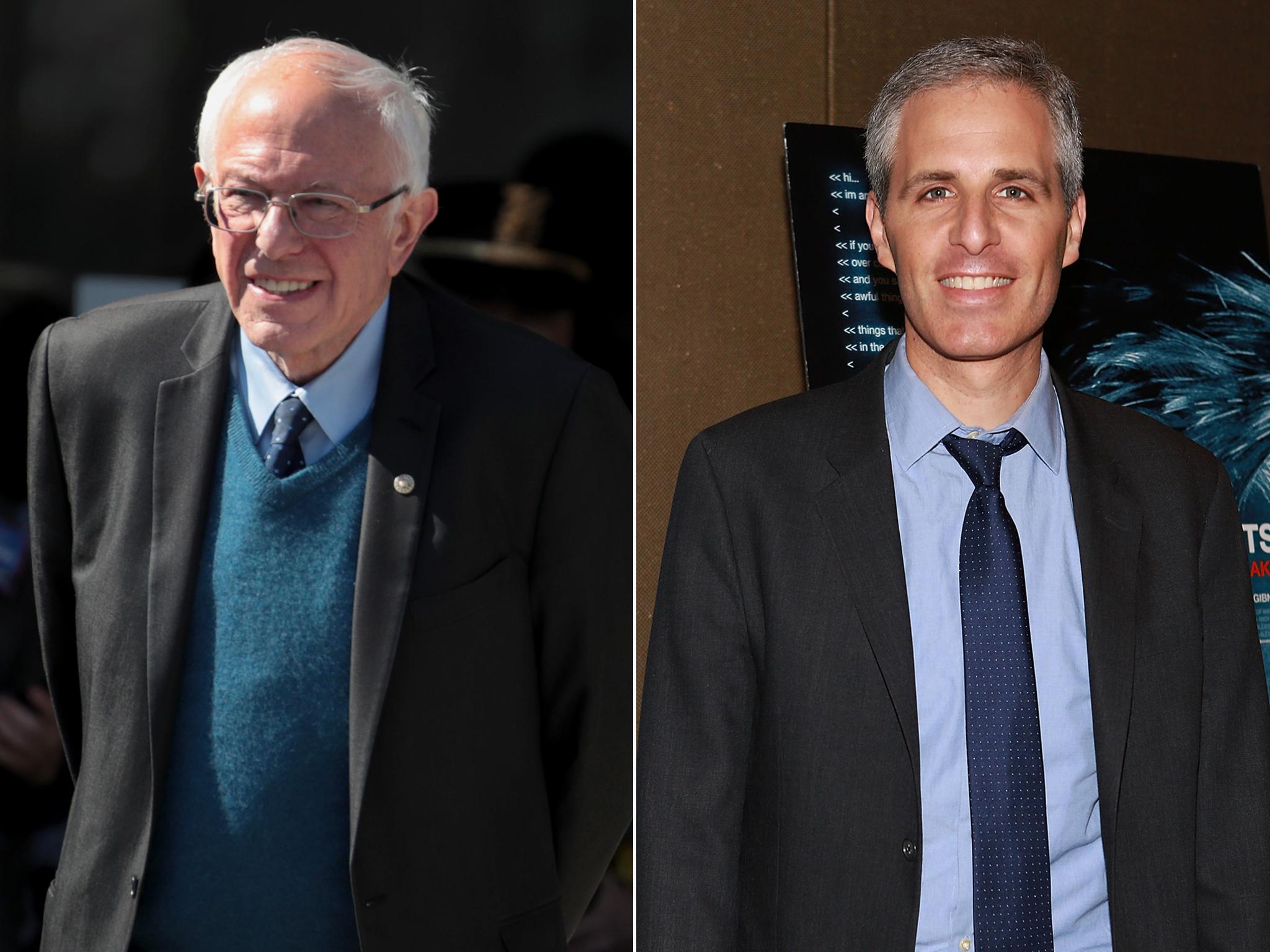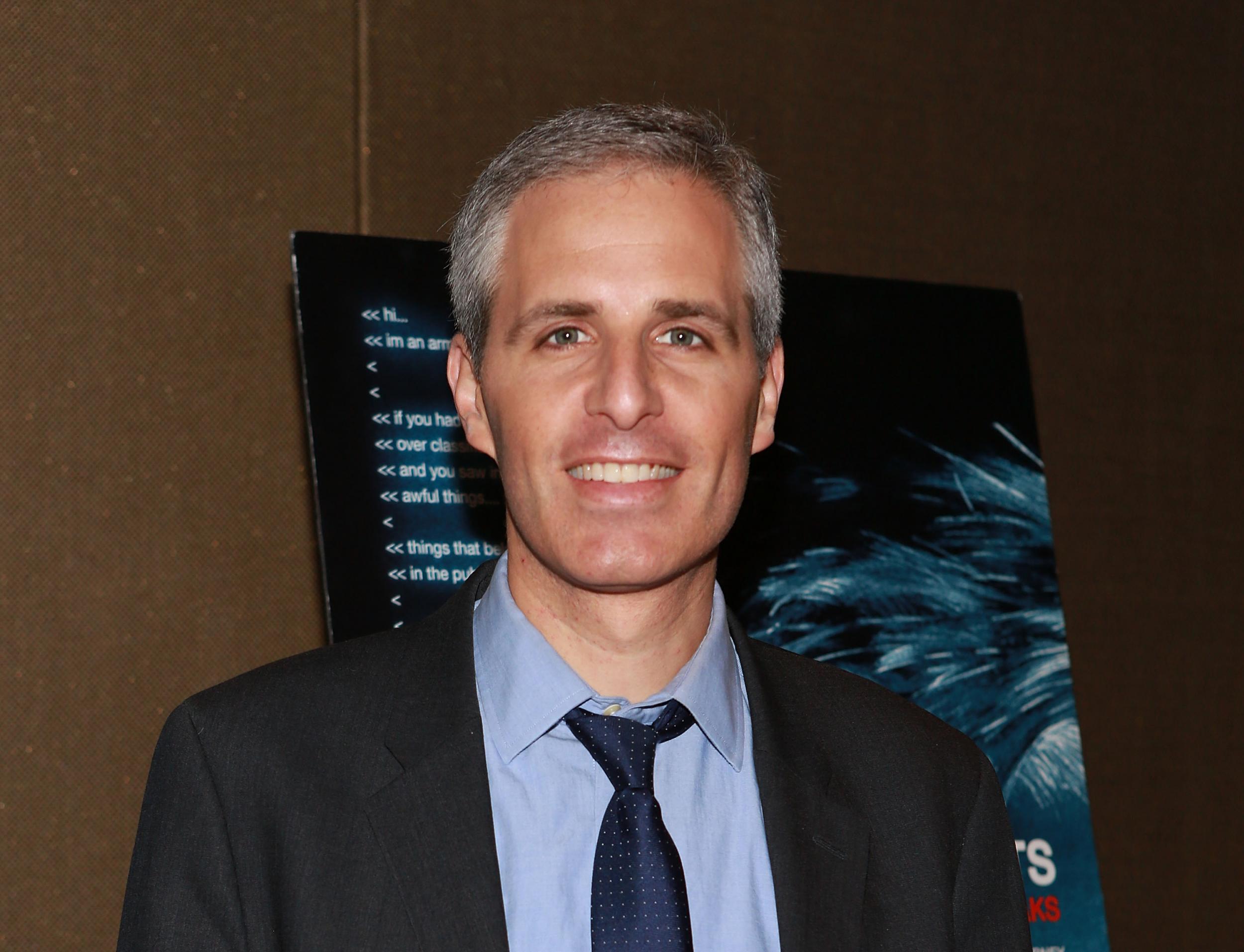Bernie Sanders’ speechwriter on the senator’s softer side, the heart attack and how to defeat Trump in November
Exclusive: David Sirota tells Andrew Buncombe the Democrats can win back the White House – if Joe Biden pays heed to progressives


Your support helps us to tell the story
From reproductive rights to climate change to Big Tech, The Independent is on the ground when the story is developing. Whether it's investigating the financials of Elon Musk's pro-Trump PAC or producing our latest documentary, 'The A Word', which shines a light on the American women fighting for reproductive rights, we know how important it is to parse out the facts from the messaging.
At such a critical moment in US history, we need reporters on the ground. Your donation allows us to keep sending journalists to speak to both sides of the story.
The Independent is trusted by Americans across the entire political spectrum. And unlike many other quality news outlets, we choose not to lock Americans out of our reporting and analysis with paywalls. We believe quality journalism should be available to everyone, paid for by those who can afford it.
Your support makes all the difference.During the course of two defiant but ultimately unsuccessful presidential bids, Bernie Sanders has become famous for the passion of his speeches and the finger he frequently jabbed in the air to make his point.
But the man who helped craft a number of those addresses, and who advised his campaign with a fervour that matched that of the candidate, says there is a softer, more human side to the Vermont senator the public may not always see.
“Bernie is one of the most human – and humane – political figures of the modern era,” says David Sirota. “His whole agenda is motivated by the most human emotions.”
In an interview with The Independent, Mr Sirota, a former journalist who was accused by some critics of being the senator’s social media “attack dog”, a charge he denies, says even though Joe Biden has emerged as the Democrats’ presidential candidate, the lesson of the success enjoyed by the campaign of the veteran progressive is that the party’s base needs to be energised if it is to defeat Donald Trump in November.
Before joining Mr Sanders’ campaign, which promoted the kinds of socialist policies the 78-year-old senator has pursued for decades, Mr Sirota, 44, worked as a journalist.
That is a role he has since returned to, with the establishment of a new media venture and newsletter, Too Much Information (TMI), which seeks to counter what he terms “information overload”, by providing insights and analysis, along with genuine scoops.
See below for the full interview.
Q1 : How would you describe your time as adviser and speech writer for Mr Sanders? What lessons did you draw from it.
A: I’ve known Bernie Sanders for more than two decades, and getting to work with him has been one of the great honours of my life. This past campaign was a tough slog against steep odds. There were a lot of ups and downs on the campaign, and I was glad to have contributed to the direction and message of the campaign.
Q2: What was the process for preparing a speech? How much did the senator contribute? What percentage was your input? It was said he preferred to write his own stuff. How did the two of you juggle that?
A: I was as much a speech researcher as a speech writer. By that I mean, I did a fair amount of original research on facts, statistics, etc and put it together in speech form, but Bernie always made all of his speeches his own. At times there was a vigorous back and forth, at other times I wouldn’t know when he might use the stuff I gave him. But all in all, it was a collaborative process.
Q3: Your hiring triggered quite a backlash from some quarters, including the offices of The Atlantic. (The magazine asserted, among other claims, that Mr Sirota was working for the Sanders’ campaign while still on books of The Guardian, something he and the newspaper have denied.) While the original article was largely debunked, what do you think that episode said about the state of debate within the party and among those on the left?
A: I was disappointed that The Atlantic chose to just fabricate parts of a story. I have a ton of respect for good journalists, and I do not like Trump-style attacks on “fake news”. However, this was the first time I ever remember dealing with an outlet that was insistent on manufacturing a story, and refused to issue a correction even when presented with facts. I think especially in this era of disinformation, honest news outlets need to be going out of their way to be fair and accurate. [The Atlantic did not respond to enquiries from The Independent.]
Q4: Do you accept you sometimes acted as Mr Sanders’ Twitter “attack dog”?
A: I don’t accept the term “attack dog”. Elections are supposed to make clear what the choices are for voters. That includes making clear the policy differences between candidates.
Tweeting out links to C-Span videos of Joe Biden bragging about his work trying to cut social security is not an “attack”. That is basic information that voters deserve to know. Facts are not attacks. They are just facts. The people who call them attacks are really just mad that someone has surfaced facts that are inconvenient to their preferred politician.
Q5: How much of a struggle was it to write in somebody else’s voice? How do you go about achieving such a craft? Did you have to listen to his speeches going back historically, or was it simply enough to be around him?
A: I’ve known Bernie a long time, so his voice is one I am very familiar with. I didn’t find it difficult to give him speech material that was in his own voice. And to be clear, his voice is very different from my own voice and style.
Q6: Is it something you think would transfer easily to another candidate? Could you write speeches for Mr Biden? What about Donald Trump?
A: If you’re working as a speech writer, the job is to try to echo the style, character and rhetoric of the principal you are working for. That takes study. I think I could write speeches for other candidates – but I think it would take a bit of time to study their cadence and their style.

Q7: While people remember people like Barack Obama for various “historic” speeches, with the exception of his 2010 attempted filibuster, Mr Sanders appears better known for his style and general message, rather individual addresses? Is this fair? Were there similarly significant speeches by the senator that did not get recognised?
A: To my mind, there were five or six Bernie speeches that really broke the mould of his more traditional rally speeches. His two launch speeches – one in Brooklyn, the other in Chicago – were far more personal in rhetoric, tone and storytelling than he’d ever been in the past. His speech on democratic socialism was a speech that I believe will stand the test of time, because it laid out such a sweeping forward-looking vision for a better country and society.
He also gave two separate speeches at the California Democratic Party that really articulated the core case for his candidacy – one was about not accepting a “middle ground”, the other was about honouring and embodying the tradition of the best moments of the Democratic Party. And then of course there was his first post-heart-attack speech in New York city, about fighting for someone you don’t know – again, I think that will be one for the history books.
Q8: Perhaps because of his speeches, Mr Sanders is best known for his energy, drive and passion. What important things about Mr Sanders do not come over in his speeches?
A: In his two launch speeches – and then a few times during town hall meetings – the more personal, emotional Bernie Sanders was on display. I think often times his stump speeches keep the audience at arms length from the human side of Bernie. But the thing is, Bernie is one of the most human – and humane – political figures of the modern era. His whole agenda is motivated by the most human emotions – compassion, solidarity and love.
Q9: While your candidate ultimately conceded to Mr Biden, he remains part of the primary process to an extent that is perhaps unprecedented. What lesson should we take from that?
A: In these fast-changing times, I think the major takeaway from Bernie continuing to collect convention delegates is that the progressive movement needs to be represented at that convention, in whatever form it takes. The more Bernie delegates are represented at the convention, the more likely the party’s platform will reflect progressive values.
Q10: How do you see things playing out in November? Can Mr Biden defeat Mr Trump? What are the most important things he could do to make sure that happens?
A: Yes, Joe Biden can defeat Donald Trump. And yes, Donald Trump must be defeated. The most important thing Joe Biden can do to maximise our ability to defeat Trump is to not be the triangulating, corporate-appeasing Joe Biden of the past. Rather than portraying himself against the progressive base of the Democratic Party – as he did for many years as a senator – Biden needs to be focused on unifying and energising the Democratic Party. And to do that, he needs to try to channel the tradition of FDR.
Q11: What can you tell me about your plans for TMI?
A: I believe that corporate- and billionaire-owned media will never consistently challenge the power of corporations and billionaires. I also believe the ad and click-based business model of journalism is dying. So what TMI is trying to do is build an independent journalism outlet that is grassroots-funded by subscribers. I think that kind of model is the future – and I really hope people will subscribe to help us expand the work we are doing.
Q12: I suspect many would agree we live amid information overload. But is another newsletter going to solve that? How is your project different?
A: I agree we live in information overload – and it is difficult to detect the signal in the noise. The newsletter project isn’t a singular answer to that – but I hope it is one of many contributions to an answer to that problem. What I’m trying to do is both break original news, and also connect dots in all the information and news that is out there. I hope readers come away from the newsletter with more of a sense of context about all the news they are being exposed to.
Join our commenting forum
Join thought-provoking conversations, follow other Independent readers and see their replies
Comments